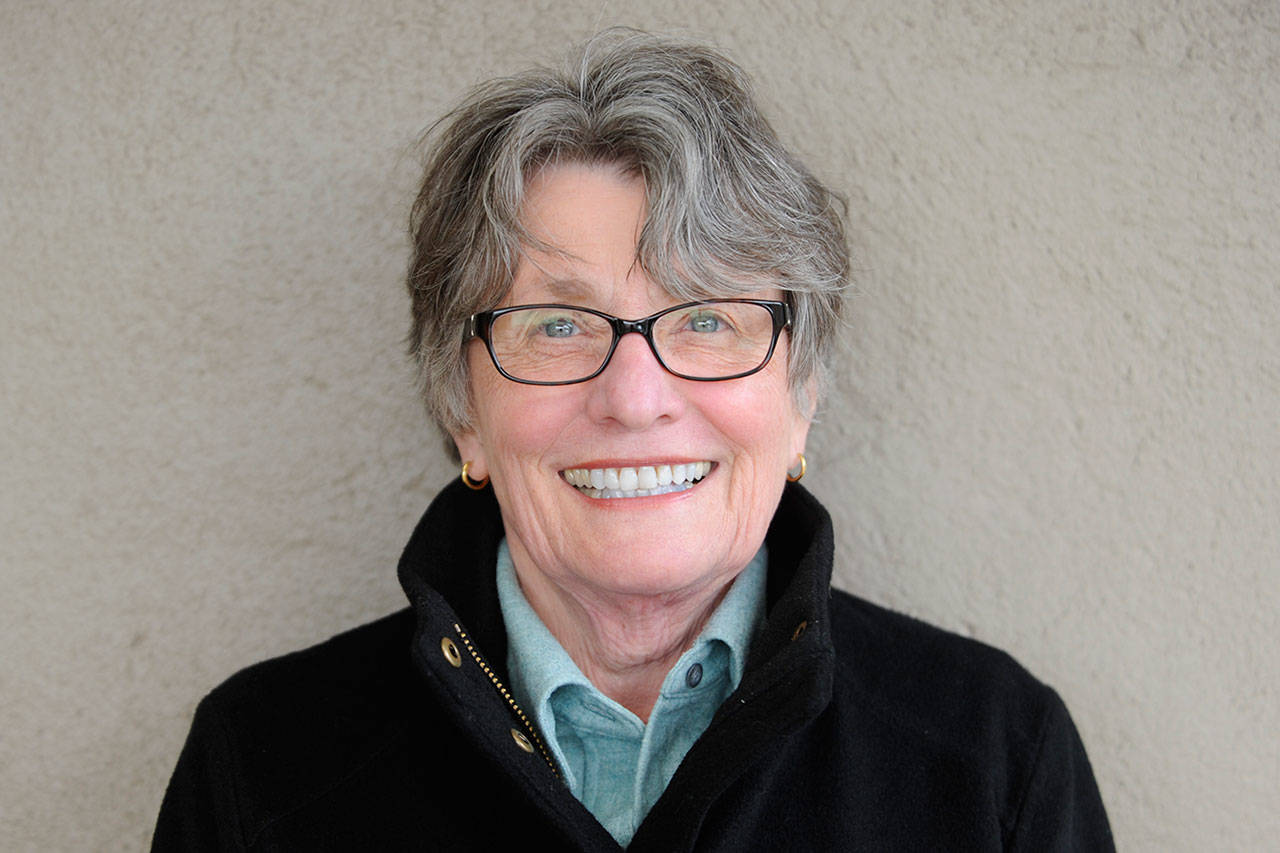Aug. 18, 2020, marks the 100th anniversary of the signing of the 19th amendment to the Constitution of the United States of America — the amendment that granted women the right to vote.
The League of Women Voters here in Clallam County and nationwide are doing their best to bring attention to the event, but our celebration has tough competition. Recognition of the significant anniversary is getting lost in the fear, strain, confusion and politics of the pandemic in an election year.
The irony is that a pandemic had a role in women’s final victory, which I will explain after I take a few sentences to remind all of us that this country was 144 years old before women were written into the Constitution. Women voting was a relatively new experience when I was born in the 1940s.
Now, these many years later, there are still men speaking against women suffrage.
The League of Women Voters born out of women’s suffrage urges us to never forget the long battle to victory or become complacent about any of our hard-won rights.
The legacy of Spanish flu
We don’t have to look far without feeling empathy and sympathy for those that worked and suffered through the Spanish flu of 1918-1919. We are experiencing the modern-day version of the same struggle for life and return to our ordinary lives that was felt by the American people in the early 20th century.
More than 100 years ago, the Spanish flu virus swept our nation and became the catalyst for social and cultural changes, one of which was gaining women the right to vote. Just how that happened is a story of tragedy, survival and spirit; perhaps, a story that will provide us direction to rise instead of fall in the pandemic’s aftermath.
The pandemic of 1918 brought forth the same struggle for survival that meant every abled person, man or woman, was called to do their part for the health and the economy of the country. Americans responded.
The flu killed about 670,000 people in the United States, and 50 million worldwide. The flu arrived just before WWI ended Nov. 11, 1918, a war that resulted in the deaths of 17 million people worldwide, one-third the number killed by the virus.
Men returning from the war in crowded ships fell ill with the flu, many dying. More soldiers, mostly men, died from the flu than the war. The flu epidemic was serious enough to shut down parts of the economy.
Work stopped because there were not enough men to do the work. Women had taken up work roles during the war but the influx of women into the workforce due to the shortage caused by the flu virus was unprecedented. Businesses who would not have otherwise considered it began hiring women to fill roles held only by men. Women stepped into roles in manufacturing in which women had been prohibited employment.
Women weren’t all at home before the pandemic. Many were working in roles that were nearly exclusively women’s work, teaching and nursing. Much effort had been put into place to strengthen the nursing work force by organizations such as the Red Cross. Nurses were deployed overseas to care for wounded soldiers which resulted in a serious nursing shortage at home.
As author/nurse Elizabeth Hanink noted in her article “Nursing During the Spanish Flu Epidemic of 1918,” the work was “hard, intense and seemingly endless.”
Both the war and flu virus took many young and old lives, including doctors and nurses, an overwhelming fate that we are working and hoping to avoid today. We can forgive those who worked and wished for equal standing for women making the same contribution and, in some cases, sacrifice to point out the failure to grant women equal rights.
Women’s suffrage was an unintended consequence of the tragic confluence of war and pandemic that made it no less deserved, a realization not lost on the leaders of the movement. Suffrage leaders leveraged women’s participation in the war effort and worker shortage due to the flu epidemic to demand more recognition of the importance of women’s work as workers or volunteers outside the home. Among those demands was equal pay for doing the same work as men.
Women’s new-found economic independence gave them a stronger voice for more rights for each woman including the right to vote and rights such as equal rights as a parent, independent financial standing and autonomous control over her body.
What legacy of COVID-19?
Doctors and nurses are on the front lines again but now speak out on media platforms. Will people listen and renew their respect for those that save lives — respect best demonstrated by personal responsibility?
Will we see a cultural boost in equal rights as a result of this pandemic much like the one we saw with women’s suffrage after the 1918-19 pandemic? Will we not blind ourselves to the fundamental inequities of health care, education and pay that put people of color at a higher risk for contracting COVID-19 and experiencing greater medical complications?
I hope so. Rights are not privilege and can be fragile. They can be lost. Each right not exercised, taken or withheld from another citizen by whatever means is an attack on our individual rights. Vote!
Bertha Cooper, featured columnist in the Sequim Gazette, spent her career years in health care administration, program development and consultation. Cooper and her husband have lived in Sequim more than 20 years. Reach her at columnists@sequimgazette.com.


